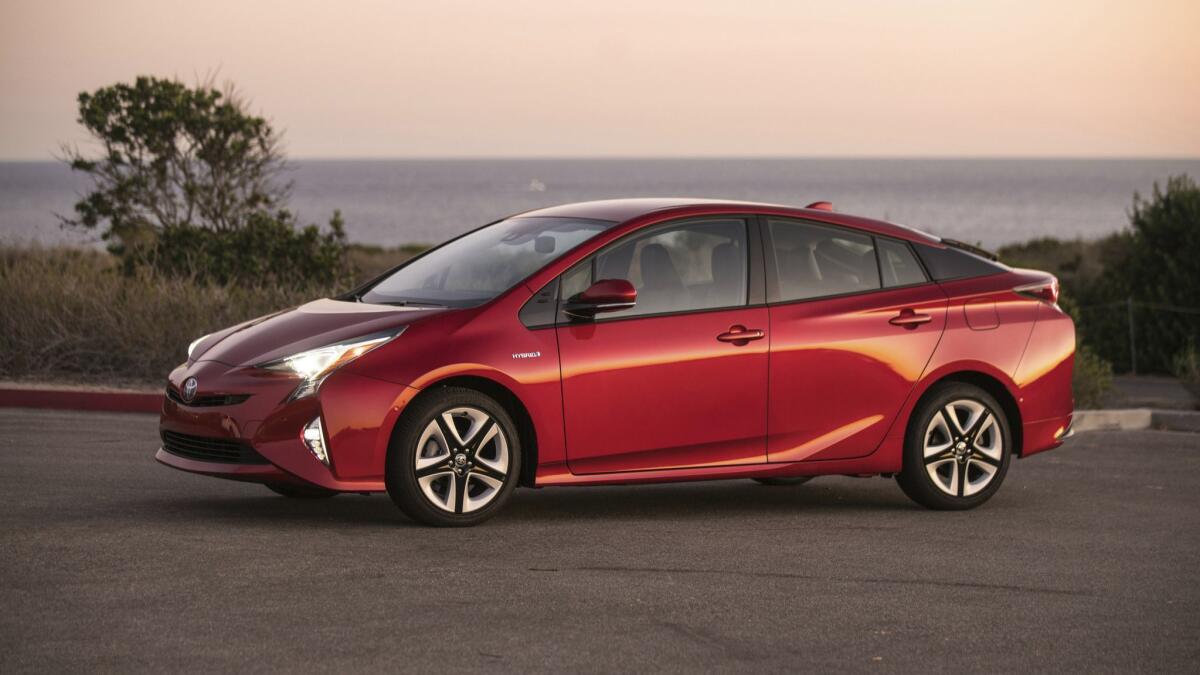Toyota recalls 1 million Prius and C-HR hybrids because of fire risk

- Share via
Toyota Motor Corp. is recalling more than a million of its Prius and C-HR compact crossover vehicles globally due to the risk of fire.
Of the 1.03 million affected vehicles, 554,000 will be called back in Japan and 192,000 in the United States, said Jean-Yves Jault, a company spokesman. There has been one reported case of a vehicle emitting smoke, but no injuries were reported, he said Wednesday.
An engine wire harness connected to the power control unit is at risk of wear over time, potentially leading to a short circuit or even a fire, the company said in a statement. The recall affects every one of the current-generation Prius, including a plug-in variant, and the hybrid version of the C-HR made until May of this year. The latest Prius began production in 2015 and the C-HR debuted in December 2016.
It’s one of the largest recalls for Toyota unrelated to Takata Corp. air bags or 2009’s unintended-acceleration crisis. In 2016, Toyota also recalled some 2.87 million cars, including the Prius, for leaky fuel tanks, and 1.43 million mainly Prius vehicles for non-Takata air bags.
The unintended-acceleration issue — in which hundreds of people complained that their cars surged forward unexpectedly, with sometimes deadly results, even when a driver was pressing the brake pedal — brought lasting scrutiny to Toyota. “This event left a scar,” said Ivan Drury, senior analyst at Edmunds.com. “It still plays a role in consumers’ minds.”
But recalls are common in the automotive industry, and Drury said Toyota is pushing the boundaries of technology, so it is bound to encounter more issues. “It’s unfortunate that Toyota became the poster child for a common problem,” he said.
Times staff writer Aurora Percannella contributed to this report.
UPDATES:
3:55 p.m.: This article was updated with comment from Edmunds.com senior analyst Ivan Drury.
This article was originally published at 9:45 a.m.
More to Read
Inside the business of entertainment
The Wide Shot brings you news, analysis and insights on everything from streaming wars to production — and what it all means for the future.
You may occasionally receive promotional content from the Los Angeles Times.










